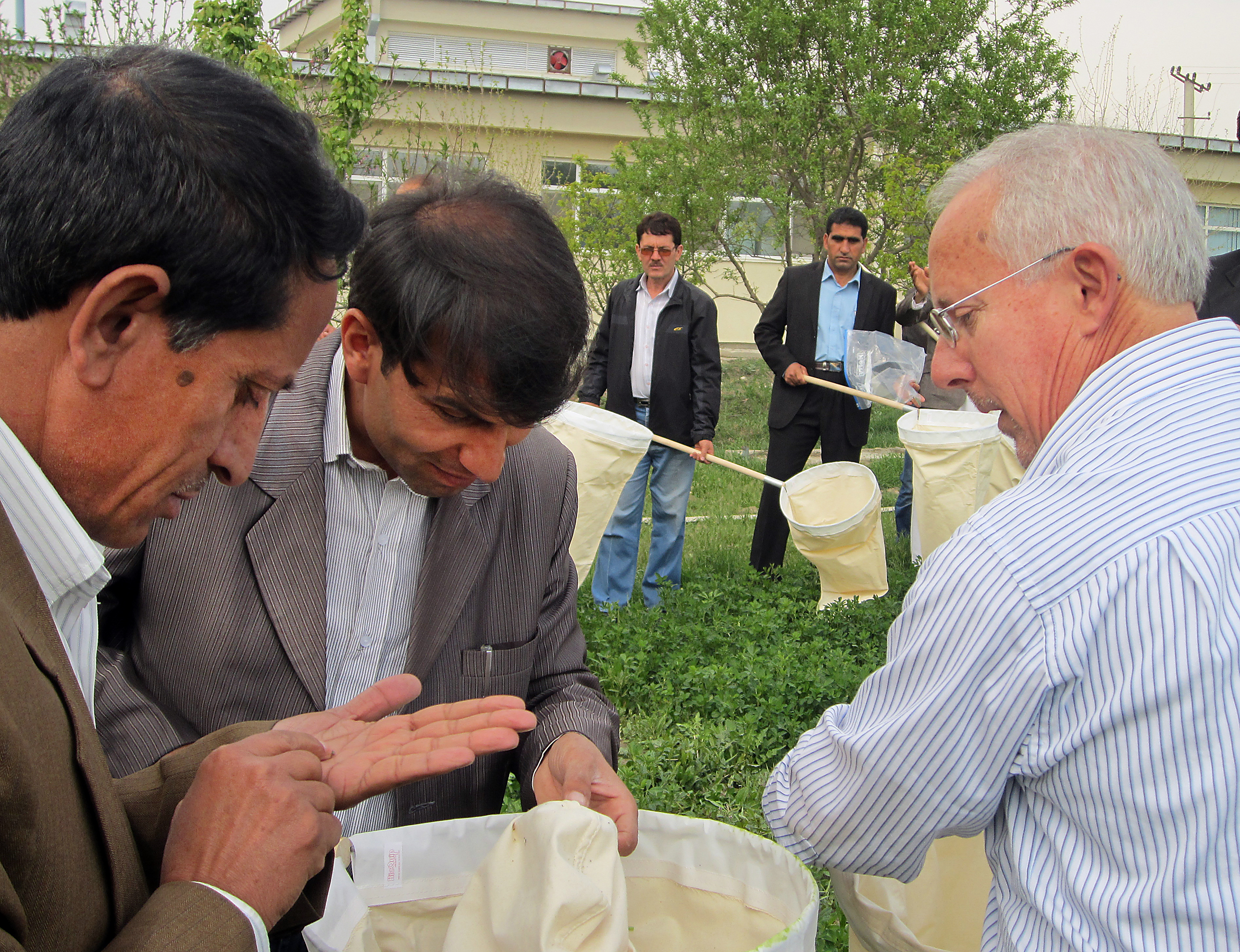Purdue starts new round of ag training in Afghanistan

Rick Foster (right), a Purdue entomology professor, looks at insects caught by Abdul Ghafoor Babori (left), director of the Plant, Pest and Disease Diagnostic Laboratory in Kabul, Afghanistan, and Khawaja Sardar Ali, pest and disease completion officer in Kabul District. (Purdue International Programs in Agriculture photo/Laura Bergdoll)
WEST LAFAYETTE, Ind. – Purdue University has begun training under a $2 million initiative funded by the U.S. Department of Agriculture to help Afghanistan improve its plant, animal and food safety and health.
Plant diagnostics training held at the Afghanistan Ministry of Agriculture, Irrigation and Livestock for 10 days ending in May was the first in a series in the Agriculture Sanitary Phytosanitry Training programs, which support efforts within MAIL to increase the quality of Afghan food through more effective food safety and quality management and certification, said program director Kevin T. McNamara.
"The plant diagnostics training is part of a larger capacity-building effort in the agriculture ministry to develop plant, animal and food safety testing facilities that will support development of Afghanistan commercial agriculture sector - both for domestic consumption and export markets," McNamara said. Other training will focus on animal health and food quality.
Twelve participants received a broad overview of diagnostics and arthropod pest identification in daily classroom and laboratory work. They were trained by Tom Creswell, director of Purdue's Plant and Pest Diagnostic Laboratory; Dan Egel, Extension plant pathologist with the PPDL; and Rick Foster, professor of entomology. For many of the students, this was their introduction to diagnostics; for others, the training introduced the foundations of plant pathology and entomology.
Objectives of the training were to:
* Provide extensive laboratory experience in identification of pets and diseases in plants.
* Give lectures on key needs related to diagnostics and development of a plant diagnostic clinic and methods to keep records.
* Provide a complete set of training materials that can be customized for future training within the ministry and at provincial-level offices.
* Develop contacts with the ministry's plant protection staff so they would feel comfortable asking for support related to their work.
Recommendations included bringing some of the most promising students to Purdue for additional training in the classroom and in labs such as the PPDL.
In June, two faculty members from Purdue will continue the training mission. Ramesh Vemulapalli, head of the Department of Comparative Pathobiology in the College of Veterinary Medicine and professor of veterinary immunology and microbiology, will give training for government officials in animal health diagnostics. Haley Oliver, assistant professor of food science, will provide training in food safety mostly to government officials and representatives of private industry and businesses. Oliver will be accompanied by a faculty member at Texas Tech University.
Purdue has been helping worn-torn Afghanistan improve its agricultural capabilities since 2002.
Writer: Keith Robinson, 765-494-2722, robins89@purdue.edu
Source: Kevin McNamara, 765 494-4236, mcnamara@purdue.edu
Related website:
Purdue International Programs in Agriculture
Ag Communications: (765) 494-2722;
Keith Robinson, robins89@purdue.edu
Agriculture News Page
